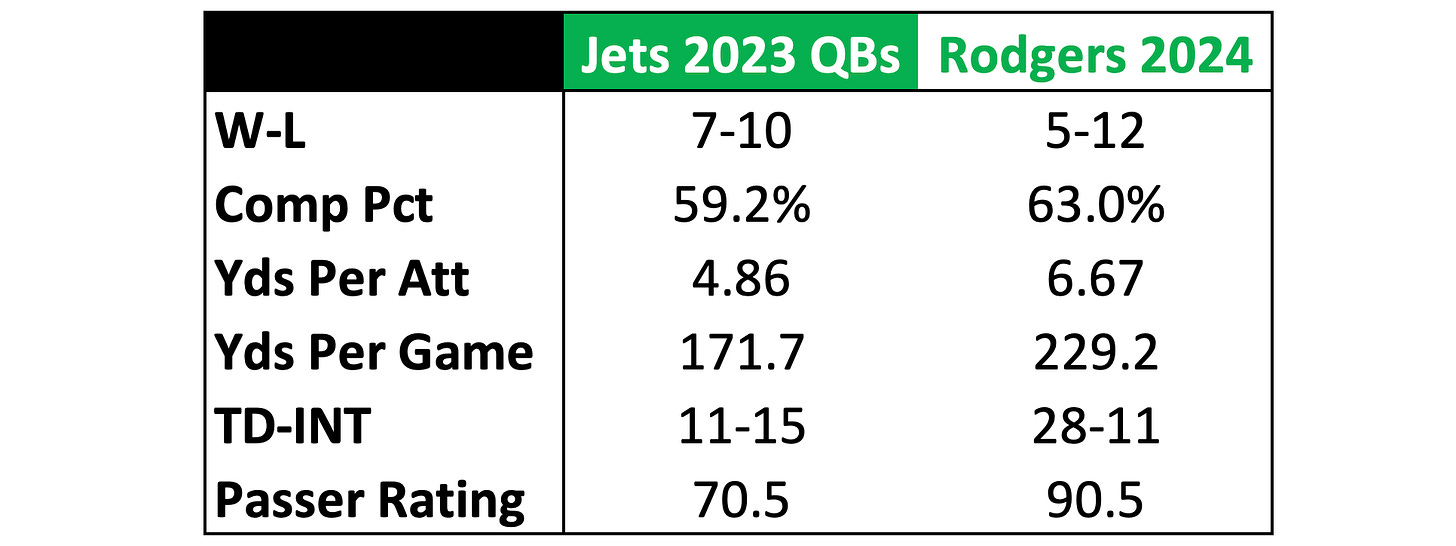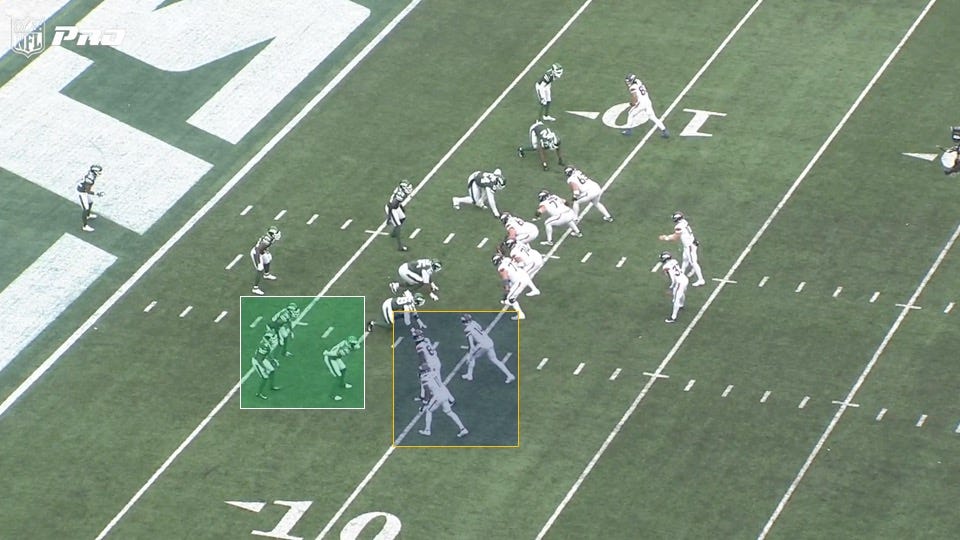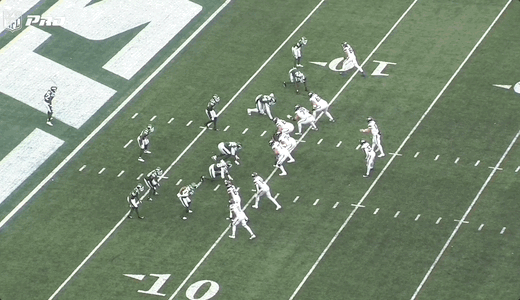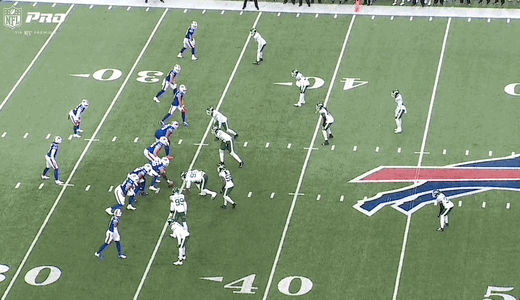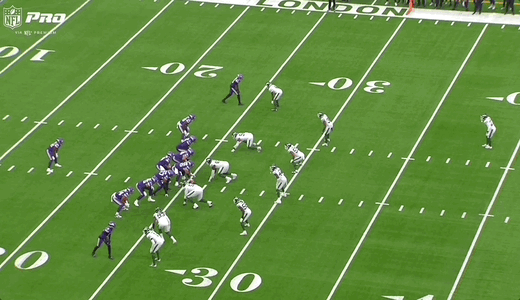The Jets were one of the more talented teams in the league entering 2024. They only added to it with the mid-season “addition” of Haason Reddick and a trade for Davante Adams.
But talent can only take you so far, especially in the NFL. Without good coaching, discipline, and attention to detail, you end up with a 5-12 record after starting the season with Super Bowl aspirations.
The easy thing to do is to blame Aaron Rodgers. After all, he was supposed to put this team over the top. Instead, he had the worst season of his career.
The Jets and their fans knew they weren’t getting MVP Aaron Rodgers when they traded for him. And they certainly knew they wouldn’t get that at age 40 and one year removed from tearing his Achilles. But his performance was still a disappointment.
That said, this whole thing wasn’t supposed to work out because Rodgers was going to play at an MVP level and put the team on his shoulders. It was supposed to work out because he was going to insert nicely into a team that had talented young skill players, the potential for a good running game, and most importantly, a dominant defense like Rodgers never had in Green Bay.
And despite this being the worst season of Rodgers’ career, it was a huge upgrade over the production the Jets got out of the quarterback position in 2023 when they went 7-10:
Close your eyes and take a deep breath, Jets fans. Get your mind back to August of 2024. If I had told you that Aaron Rodgers would play all 17 games this season, throw for 3,897 yards, and have a 28-11 TD-INT ratio, what would you have predicted the Jets record to be? I’m guessing you probably would have booked flights to New Orleans right then and there.
We’ll get more into Rodgers’ performance at another time. The point here is that when you get that big of a jump in production at quarterback and the team gets substantially worse, common sense should tell you that the quarterback was not the main cause.
The fact of the matter is that nothing went right with this team.
They led the league in penalties, penalty yards, and penalties per play. They had the 2nd-most dropped passes in the NFL. The kicking game was a disaster and likely cost them 2-3 wins in the first half of the season.
The running game also never quite got on track. Even when it seemed to get going, penalties would result in big plays being called back or force the Jets into long down-and-distance situations that got them away from the run. When the ground game was most needed in short-yardage or goal-line situations, it failed repeatedly.
But the Biggest Disappointment Was…
The defense.
This was supposed to be a dominant unit that would keep the Jets in every game, put the team on its back to flat-out win a few games, and protect 4th-quarter leads.
They did none of that. “All gas, no brakes” turned into “The engine’s running, but no one’s behind the wheel.”
The Jets finished 20th in points allowed. They had 5 games with 30 points allowed and 9 with 25 or more. Even more consequential was the fact that they lost 6 games after holding a lead in the 4th quarter. They lost another in Week 6 after being unable to keep Buffalo from taking the lead with the game tied in the 4th quarter. They were also bailed out by the offense in Jacksonville after blowing two 4th-quarter leads.
Forget the 1985 Bears. This Jets defense wasn’t even as good as the 2024 Bears.
And that traces back to the firing of head coach Robert Saleh, which was the moment that this season spiraled out of control.
This is not because Saleh proved himself to be Vince Lombardi during his time with the Jets. His record (20-36) was the third worst in team history for any head coach given at least 2 seasons. Only Rich Kotite and Adam Gase were worse.
But firing Saleh 5 games into the season was a rash decision that clearly threw everything into disarray. That was a move that should have been made last offseason or after this season. Not in Week 6 after a mere 2-3 start.
Defensive coordinator Jeff Ulbrich was thrown into an impossible situation. Instead of just calling the defense and focusing on the details of the opponent’s offense each week (which he had succeeded at for 2 years), far more was piled onto his plate overnight. The defense clearly suffered as a result.
Through their first 5 games of the season, the Jets ranked 5th in the NFL with just 17 points allowed per game. After Saleh was fired, they allowed 26.6 points per game, which ranked 28th in the NFL.
That’s a bottom-5 scoring defense for nearly three quarters of the season, folks.
The Same Mistakes
Regardless of who was head coach, the Jets seemed to lack attention to detail all season. They made the same mistakes every week. For instance, they never had an answer for handling bunches and stacks or route combinations where defenders had to fight through traffic in man coverage. These are common tactics in today’s NFL, so it’s a surprise that this was such an issue all year.
Just check out this play from their Week 4 loss to the Broncos (before Saleh was fired). This was a 3rd-and-7. Focus on the bunch at the bottom of the screen:
Two DBs would end up going with the outside receiver and no one went with Courtland Sutton, the Broncos’ top pass-catcher:
Three months later in Week 17, the Jets still were unable to avoid allowing wide-open receivers out of trips-bunch looks. Focus on the motion to bunch at the top of the screen on this 3rd down:
This next play wasn’t a bunch. But it was an example of the Jets’ inability to play through traffic in man coverage. Focus on the bottom of the screen:
Plays like these seemed to happen every week.
Going back to that Week 17 game against the Bills, a 40-14 loss, one of the most damning aspects of the defense’s performance was how many coverages were blown on the first two drives. We’re not talking about a Week 1 game here. We’re talking about a Week 17 game!
Just check out this 3rd-and-13 that the Bills were able to easily convert on their opening drive:




